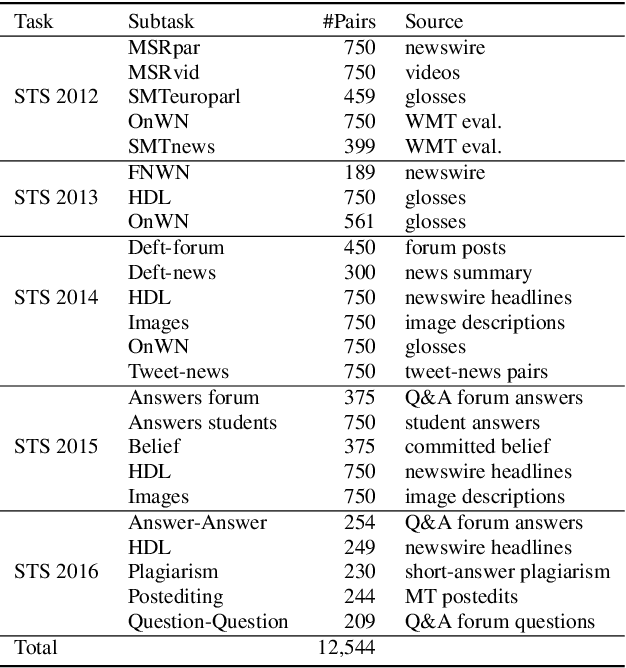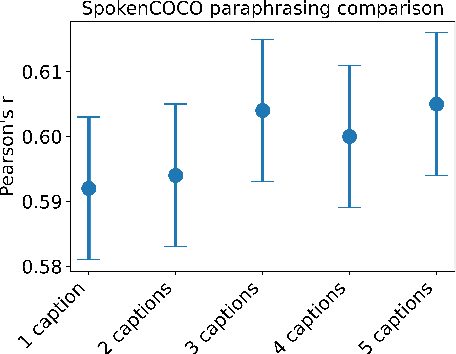Semantic sentence similarity: size does not always matter
Paper and Code
Jun 16, 2021



This study addresses the question whether visually grounded speech recognition (VGS) models learn to capture sentence semantics without access to any prior linguistic knowledge. We produce synthetic and natural spoken versions of a well known semantic textual similarity database and show that our VGS model produces embeddings that correlate well with human semantic similarity judgements. Our results show that a model trained on a small image-caption database outperforms two models trained on much larger databases, indicating that database size is not all that matters. We also investigate the importance of having multiple captions per image and find that this is indeed helpful even if the total number of images is lower, suggesting that paraphrasing is a valuable learning signal. While the general trend in the field is to create ever larger datasets to train models on, our findings indicate other characteristics of the database can just as important important.
 Add to Chrome
Add to Chrome Add to Firefox
Add to Firefox Add to Edge
Add to Edge